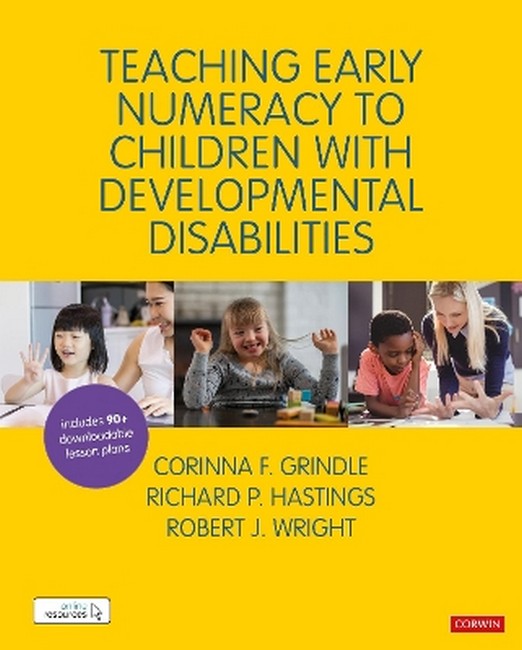Dr Corinna F. Grindle is an associate professor at the Centre for Educational Development Appraisal and Research (CEDAR), University of Warwick, UK. Corinna obtained her undergraduate degree at the University of Warwick, and her PhD at the University of Southampton, in 2004. She has over 25 years' experience working with children and adults with autism and related developmental disabilities. Corinna has taught university courses for teachers and specialists regarding autism, developmental disabilities, curriculum design and effective instruction. She has been invited to present at national and international conferences regarding educational, behavioural and communicative issues relating to children and young people with developmental disabilities. Corinna's research interests include early intervention, challenging behaviour, and fostering academic learning for students with moderate and severe developmental disabilities. Her research has been published in several peer-reviewed journals including the Journal of Autism and Developmental Disabilities and Research in Developmental Disabilities. Richard P. Hastings is a Professor of Psychology and Education in the Centre for Educational Development Appraisal and Research at the University of Warwick, UK, and Monash Warwick Professor in the Centre for Developmental Psychiatry and Psychology at Monash University, Australia. Richard is an internationally leading researcher focused on children and adults with developmental disabilities (especially intellectual disability and/or autism) and their families, and one of the highest cited special education researchers internationally. His research interests include mental health and well-being in schools, and developing and testing academic interventions for children with special educational needs in both mainstream and special education settings. Dr Robert J. (Bob) Wright holds Bachelor's and Master's degrees in mathematics from the University of Queensland (Australia) and a doctoral degree in mathematics education from the University of Georgia. He is an adjunct professor in mathematics education at Southern Cross University in New South Wales. Bob is an inter-nationally recognized leader in assessment and instruction relating to children's early arithmetical knowledge and strategies, publishing six books, and many articles and papers in this field. His work over the last 25 years has included the development of the Mathematics Recovery Program, which focuses on providing specialist training for teachers to advance the numeracy levels of young children assessed as low-attainers. In Australia and New Zealand, Ireland, the UK, the USA, Canada, Mexico, South Africa and elsewhere, this programme has been implemented widely, and applied extensively to classroom teaching and to average and able learners as well as low-attainers. Bob has conducted several research projects funded by the Australian Research Council including the most recent project focusing on assessment and intervention in the early arithmetical learning of low-attaining 8- to 10-year-olds.
Request Academic Copy
Please copy the ISBN for submitting review copy form
Description
Chapter 1: Introduction Chapter 2: Mathematics Recovery Chapter 3: Adapting Mathematics Recovery Chapter 4: Motivating students with developmental disabilities to learn Chapter 5: Discrete-trial teaching Chapter 6: Using prompts in teaching Chapter 7: Ensuring learning lasts Chapter 8: Preparing to teach
This very useful book adapts the Maths Recovery Programme to suit the learning needs of students with a developmental disability. It provides an extensive and detailed approach to assessment, learning and teaching that embodies evidence-based best practice. -- Charlotte Madine This much needed book is an essential read not only for educators but for educational leaders everywhere. The plea to maintain high aspirations when teaching numeracy to children with developmental disabilities resonates throughout each chapter as the authors skilfully challenge misconceptions and offer practical solutions. This book is a vital tool in maximising the numeracy potential of all children and I wish somebody had given this to me when I became a maths teacher more than 15 years ago. -- Professor Adam Boddison

